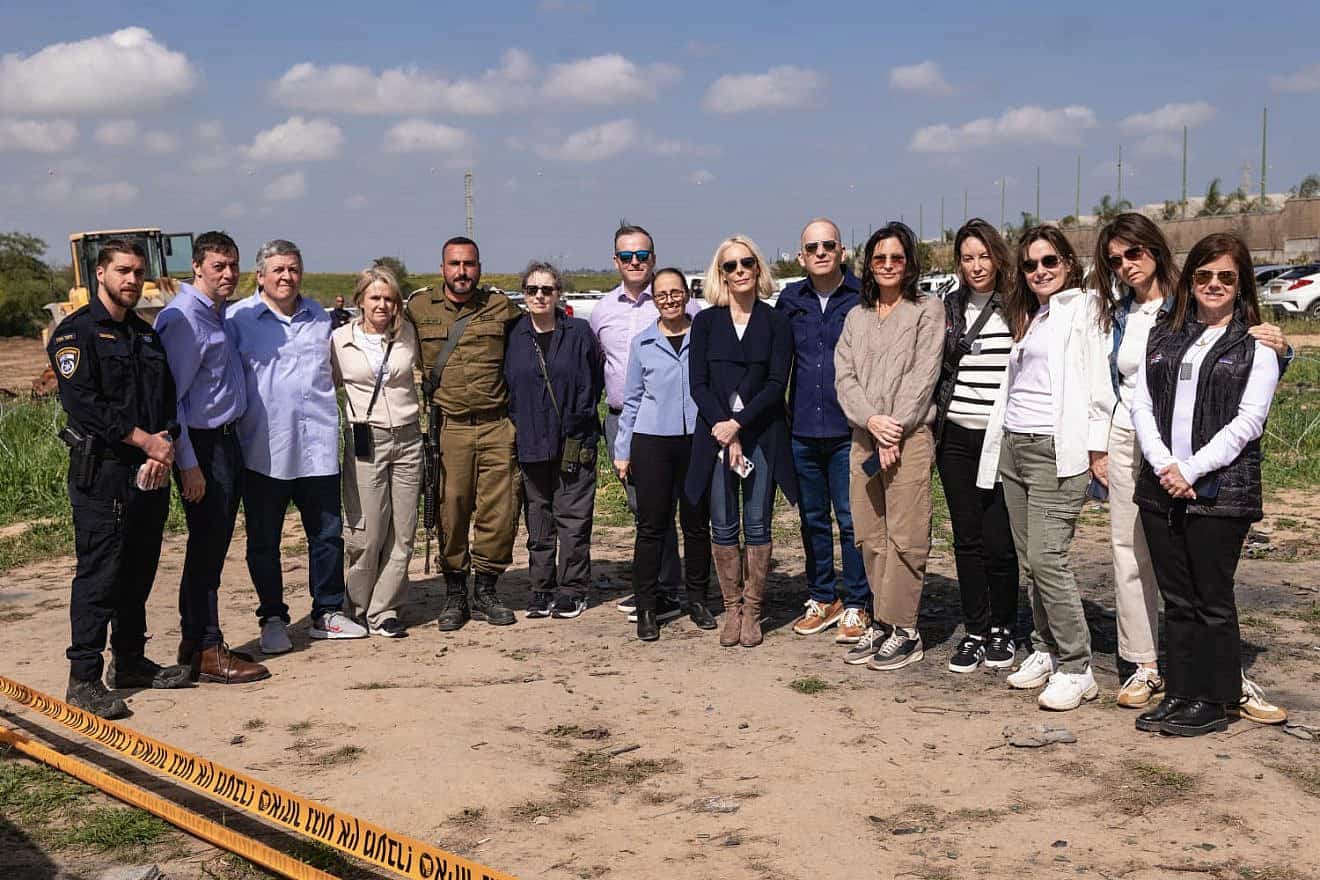World Jewry is facing its most dangerous period since the end of the Holocaust nearly eight decades ago, the head of the University of Southern California’s Shoah Foundation said on Tuesday.
“The denial of the Holocaust and the attack of Oct. 7 are yet another version of antisemitic conspiracy theories which date back to ancient, centuries-old thinking blaming Jews for [one’s] own suffering,” USCSF executive director Robert J. Williams told JNS during a visit to Israel.
“I didn’t think it would ever be this bad,” said Williams, a Holocaust scholar who also serves as UNESCO chair on Antisemitism and Holocaust Research and as an adviser to the International Holocaust Remembrance Alliance. “This is the most dangerous moment for Jews since 1945.”
What’s more, the Jew-hatred is now coming from multiple sources, he said.
“We knew about antisemitism on the left but were led to believe that it is not as deep and present as from religious extremists on the right,” he said, “but it is just as real a threat.”
Williams noted that while denialism was “a fact of life” in today’s modern world, such distortion and omission of crimes against Jews is inherently antisemitic and a persistent historic theme dating back to the infamous forgery “The Protocols of the Elders of Zion.”
He panned “a very subjective anti-Israel media culture” in allowing conspiracy theories to germinate.
“The media bias against Israel is part of the denial; whether it is intentional or otherwise the effect is the same,” he said.
Contributing to the historical record of Oct. 7
With 56,000 testimonies of Holocaust survivors and a new focus on antisemitism and the collection of Holocaust testimonies, the USC Shoah Foundation decided in the days after the Oct. 7 attack to gather victims’ testimonies and has amassed more than 400 video testimonials to date.
“We are contributing to the factual record of the crimes that took place [on Oct. 7] and have come here on a research trip to see not only who [the victims] are but where they lived,” he said.
His visit to Israel included a tour of areas in the south hardest hit during the massacre, as well as a stop at the Yad Vashem Holocaust Museum in Jerusalem and a meeting with President Isaac Herzog. The visit was punctuated by an event inaugurating a joint partnership formed with the National Library of Israel in Jerusalem.
The uniqueness of the Holocaust
According to Williams, since he took over the foundation last year, its renewed focus on the Holocaust and antisemitism—private donors had reportedly sought such a shift from an earlier, more general focus on genocide—stemmed from a sense that branching out would minimize the role of the Holocaust.
“If we’re opening the door to move past the Shoah but not doing right by the Shoah, you risk distracting people from understanding why the Holocaust was so important,” he said, calling the systematic murder of 6 million Jews during World War II “one of the seminal events in human history which shape the world we live in.”
“I hope that this can be a moment to address antisemitism with eyes wide open and know that it knows no political, cultural, social or religious bounds,” he said.


























